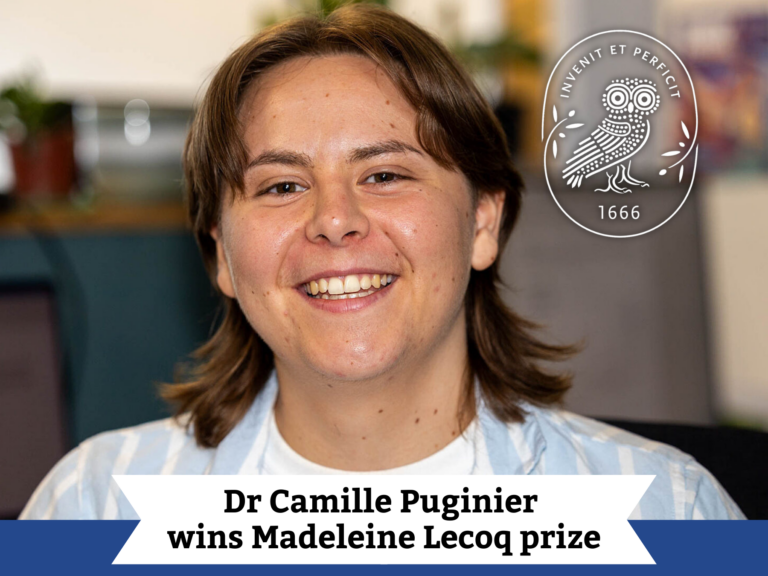Independent report to government on GM
Plant scientists have recommended a new programme of independent research to field test "public good" GM crops. The proposal, which they are calling PubGM, would support innovations to benefit consumers and the environment.
The recommendation is made in a report to the Council for Science and Technology, the body that advises the Prime Minister on science policy issues. Leading plant scientists from the Universities of Cambridge and Reading, The Sainsbury Laboratory and Rothamsted Research also recommend that legislation for GM crops should be decided on a national level, in a similar way to pharmaceuticals.
“Crop varieties improved by GM methods can help maintain or increase harvests while reducing environmental impact, but we need to assess their usefulness out in the field,” says Professor Jonathan Jones from The Sainsbury Laboratory.
“With PubGM, seed companies, consumers and regulators will be able to decide, based on results of experiments, whether a GM trait has proved its worth in UK crops under UK conditions.”
The authors also endorse the view of 29 scientific bodies across Europe, represented by the European Academies Science Advisory Council (including the Royal Society in the UK), that there is no rational basis for the current stringent regulatory process for GM crops.
“Most concerns about GM crops have nothing to do with the technology which is as safe as conventional breeding,” says Professor Sir David Baulcombe, chair of the report’s working group and Head of Plant Sciences at the University of Cambridge.
“They are more often related to the way that the technology is applied and whether it is beneficial for small scale famers or for the environment. To address these concerns we need to have an evidence-based regulatory process that focuses on traits, independent of the technology that has been used to develop them,” he says.
This is the approach taken in regulating pharmaceuticals - regulators look to the effects that new drugs have on patients not to the technology used to develop them, which in many cases involves genetic modification.
The authors recommend that after the assessment process, approval for commercial cultivation should be made on a national level, as is also the case for pharmaceuticals.
The UK is a world leader in basic research in plant genomics, both GM and non-GM. Advances can help make land use more efficient - providing space for biodiversity and wilderness, reduce fertiliser and chemical use, increase yields, combat the effects of unpredictable weather and make existing crops richer in nutrients. To respond to these challenges, GM technology and a well-functioning R&D pipeline for both GM and non-GM crop varieties need to be at the disposal of plant breeders.
Some advances in genomics will blur the lines between GM and non-GM plants. With genome editing, such small changes can be made to plants that they are indistinguishable from random mutations produced during natural variation or by chemical mutagenesis.
In other advances, it is becoming possible to deliver multiple genes to a plant at the same time, such as for both disease resistance and nutritional enhancement. Regulatory approval for such plants would be difficult to achieve under the current system. For example, each added protein would require a separate toxicity test even it is known to be safe in non-GM plants. Regulations already add at least £10-20 million to the cost of developing a GM trait in a crop. These costs are prohibitive for the public sector and for small and medium sized enterprises.
The authors recommend that the European Food Safety Authority retain an advisory role on risk and safety, similar to the European Medicines Agency for pharmaceuticals, and that approval is made on a national basis, as by the National Institute for Health and Care Excellence in the UK.
“Technology for making crops healthier and more environmentally-friendly is moving on fast, but the regulatory system needs to change to allow us to take advantage of these benefits sooner,” says Professor Jones.
Further comment:
Professor Sir Mark Walport, Government Chief Scientific Advisor:
We need to optimise agricultural productivity of land in a way that causes the least damage to the natural environment. The new report highlights exciting potential in UK science for new crops that are kinder to the environment at the same time as producing more food here and around the world. Finding ways to take that science forward is a priority for scientists, industry and regulators.
The report:
GM Science Update, a report to the Council of Science and Technology
URL: https://www.gov.uk/government/publications/genetic-modification-gm-technologies
Authors:
Professor David Baulcombe, University of Cambridge
Professor Jim Dunwell, University of Reading
Professor Jonathan Jones, Sainsbury Laboratory
Professor John Pickett, Rothamsted Research
Professor Pere Puigdomenech, University of Cambridge
Contacts, interview and filming opportunities
The University of Cambridge: Becky.Allen@admin.cam.ac.uk, 01223 332300
University of Reading: p.castle@reading.ac.uk, 0118 378 7391
The Sainsbury Laboratory: zoe.dunford@jic.ac.uk, 07768 164185 (GM potatoes, plants in glasshouses and controlled-environment rooms, the process of making a GMO, purple tomatoes and other research at neighbouring John Innes Centre)
Rothamsted Research: matina.tsalavouta@rothamsted.ac.uk, 01582 763 133 ext 2525


